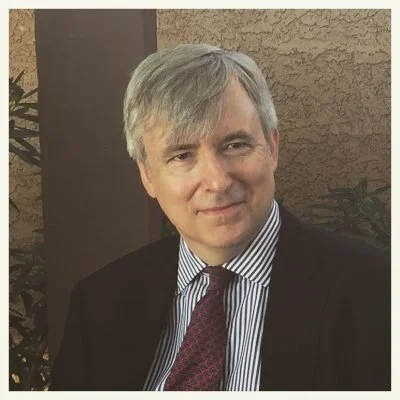Ron and Ed welcomed Andrew Stuttaford to the show this week. Andrew edits National Review's Capital Matters which focuses on financial and economic coverage. We talked about a wide range of topics including: inflation, energy in Europe in the wake of war, China and Taiwan.
A bit more about Andrew Stuttaford…
Andrew Stuttaford is the editor of National Review's Capital Matters. He took up full-time positions with National Review and National Review Institute in March 2020 and is now the editor of National Review's Capital Matters, a new initiative focused on financial and economic coverage. Prior to joining National Review and National Review Institute, Andrew, who qualified as an attorney in the U.K., worked in the international financial markets for nearly four decades, latterly as the CEO of the U.S. subsidiary of a Nordic investment bank. Andrew has written for a wide range of publications over the years including the Wall Street Journal, The New Criterion, The Weekly Standard and Standpoint on political, economic and cultural matters and has been writing for National Review since his debut with the magazine in 1992. Andrew tweets at as @astuttaford and a sporadically updated archive of his work can be found at andrewstuttaford.com.
Use these show notes to follow along with the audio…
Segment one:
Andrew Stuttaford has been writing for National Review since 1992. Capital Matters has been running since 2020.
Andrew was lucky to have met William F. Buckley at a dinner. “Now, tell us what’s going on in Europe…” was Buckley’s first question to Andrew. No pressure!
Having investments in products that are tailored to the needs of clients is perfectly acceptable. But how did ESG fuse so fast? The cynical answer is money.
ESG is part of a broader shift from shareholder theory to stakeholder theory. Andrew commented on this as “the vice or the virtue”. Very clever turn of phrase.
The whole point of free markets is consumer welfare — not shareholder or company welfare.
Stakeholder capitalism can be traced back to the Middle Ages under various names and it took form in the 20th century during the post war years.
Under the Chinese model, you can have a free market - sort of - but it is subordinated to the interests of the state.
Our bonus episodes (and commercial free shows) are at Patreon.com/TSOE and are sponsored by @90Minds! More minds meld at 90Minds.com!
Segment two:
Ed referenced this interview during the show today — Whole Foods' John Mackey: 'I Feel Like Socialists Are Taking Over' https://reason.com/podcast/2022/08/10/whole-foods-john-mackey-i-feel-like-socialists-are-taking-over/
Milton Friedman was right in that the first duty of managers is to maximize shareholder value — within the bounds of the law — so as to increase profitability.
Stakeholderism is a way of getting around the law — not in the sense of law breaking — but in the sense of activities being imposed in the name of ESG.
There are two sides to the struggle of stakeholderism: The boardroom and day-to-day management of the business vs the bastardization of the concept of what ownership of a share means.
1/2 The giant institutional shareholders - particularly the index funds - own a huge slice of corporate America and are now saying, “If we are invested in you, we want you to pursue A, B, and C.”
2/2 However, these shareholders are insisting that companies behave in a way that is not in the interest of increasing profitability.
Segment three:
Andrew wrote an article just a few days ago called, “China and an ESG ‘Dilemma’“ https://www.nationalreview.com/2022/08/china-and-an-esg-dilemma/
“Any ESG fund that invests in China ought to be laughed out of court.” —Andrew Stuttaford
“There’s no dilemma when slave labor is involved.” —Andrew Stuttaford
The problem for the world is that China is a massive part of the global economy. What you need to do is reorient your supply chains.
If we have a revised nuclear industry in the US (and Andrew stipulates we will), how are people going to react if there is a disaster? Not a Chernobyl-level disaster but an accident such as a leak. Will it shut us down completely again?
Segment four:
Paraphrasing Andrew: Europe became dangerously reliant on Russian gas but simultaneously invested in renewables. Prices have soared for natural gas and renewables infrastructure is not ready for prime time.
A big THANK YOU to Andrew Stuttaford for joining us today. Please check out National Review’s Capital Matters, of which Andrew is the editor. More at this link: https://www.nationalreview.com/capital-matters/
Bonus Content is Available As Well
Did you know that each week after our live show, Ron and Ed take to the microphone for a bonus show? Typically, this bonus show is an extension of the live show topic (sometimes even with the same guest) and a few other pieces of news, current events, or things that have caught our attention.
This past week was bonus episode 403 - Is Amazon going DPC?
Here are a few links Ron and Ed discussed on the bonus episode:
Disney Just Passed Netflix In Total Streaming Subscribers – Deadline
People Spend 500 Years Every Day on CAPTCHAs: Cloudflare | Technology News
Click the “FANATIC” image to learn more about pricing and member benefits.



